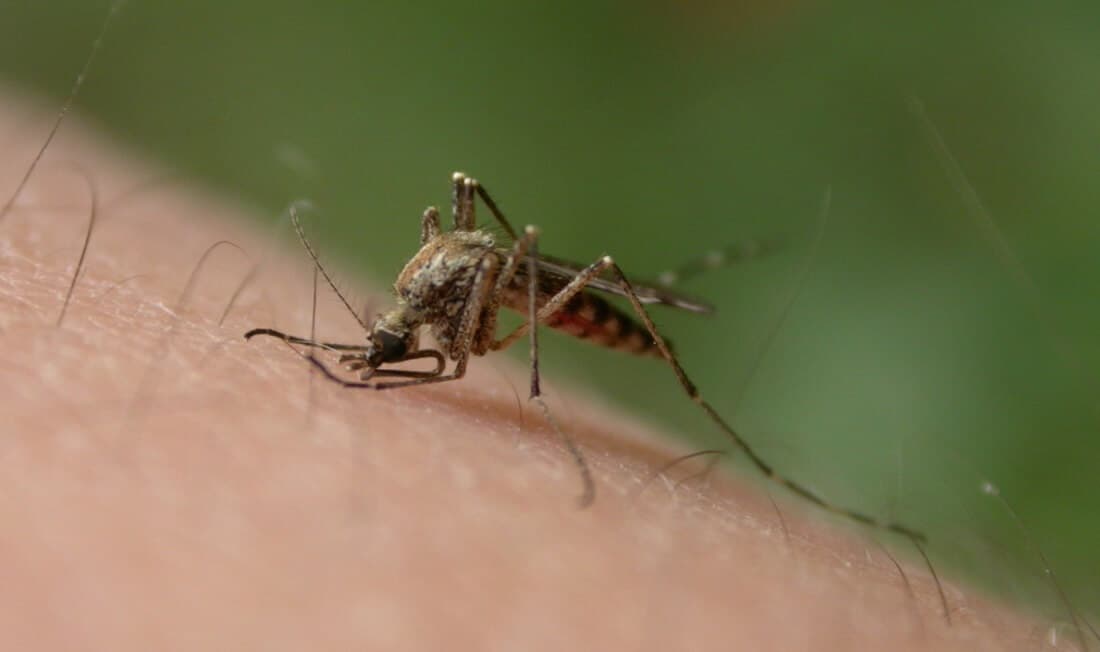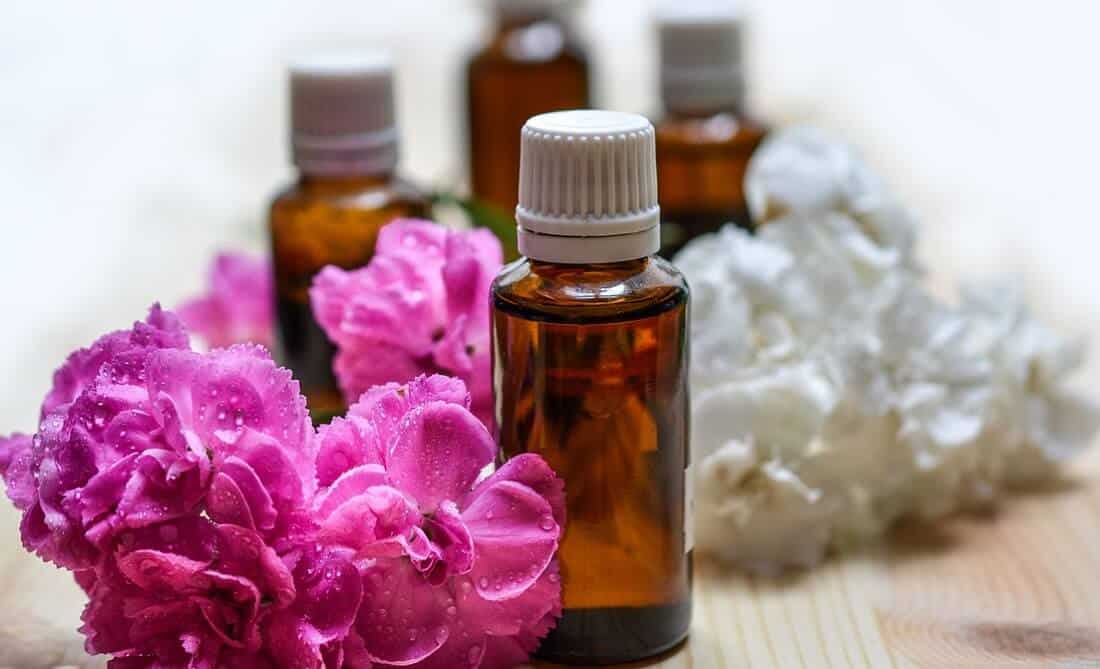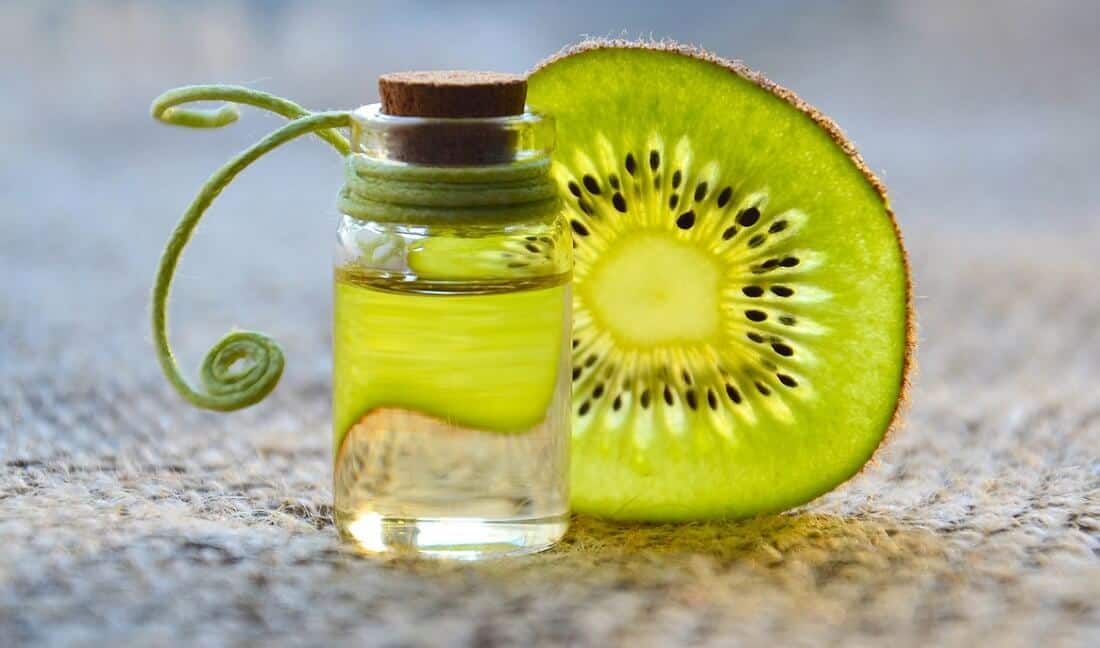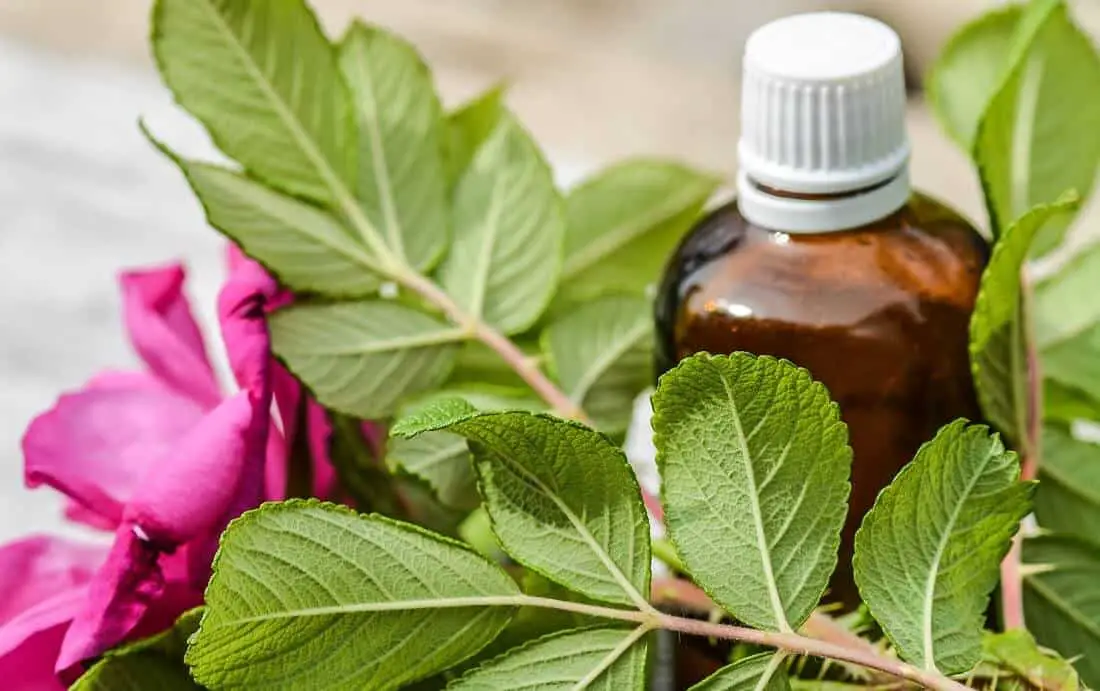
Some of the best times spent outdoors can be marred by pesky insect swarms and itching bug bites. While bug sprays are usually effective methods of repelling insects, studies and anecdotal evidence increasingly points to the fact that they may be harmful for our bodies and the environment.
Fortunately, the rising popularity of essential oils has led to the circulation of a number of recipes and mixes that you can use to ward off bugs all year long.
This guide includes tried and true do it yourself essential oil bug repellent recipes as well as how to apply them safely for adults and children.
We’ll also go over why you should make the switch from bug sprays, and a list of organic ready-made recipes that you can buy if you are stretched for time.
How Essential Oils Work
Essential oils have gained popularity as an effective form of alternative medicine.
Many advocates of aromatherapy utilize essential oils as methods of healing any number of common health concerns and ailments, including stress and depression, allergies, infections, and aches and pains.
Increasingly, people are turning to essential oils and blends of different essential oils as potent natural remedies.
But aromatherapy isn’t the only way essential oils are used. They are also used topically on the skin or taken internally. (Make sure you have a high-quality essential oil before you take it internally).
What are essential oils?
Essential oils are the concentrated composites extracted from plants and herbs. All plants have oils that carry the nutrients and essence of the plants. These oils are stronger in the plants’ essence that a plant’s “juice” contains.
What’s the difference between a plant’s essential oil and its juice?
The juice of a plant is the water contained in a plant. Take, for example, orange juice. The juice or water content is found inside the fruit of the orange.
But, the essential oil is found in the peel. The peel has a much stronger smell and taste of orange than the fruit. That’s why most people don’t eat the peel. But the oil of an orange carries a concentrated essence of the nutrients and benefits of the orange that can be used when it’s essential oil is used.
Essential oils are created by refining processes such as cold pressing or distillation, which obtain the chemicals that represent the “essence” of the plant is highly potent, very small amounts. These compounds are then coupled with a carrier oil.
The finished essential oil is usually a fragrant liquid solution that can be used in several different ways.

Topical applications are the most common, though aromatherapy utilizes the essential smells of plants to induce a certain effect through inhalation. Some studies show that inhalation can stimulate areas of the brain and other limbic systems to create a sense of calm or recall certain memories associated with a smell.
Ingestion is another way essential oils are used.
- Topical use of essential oils
- Aromatherapy
- Ingestion, or internal use
Some common essential oils and their uses include:
- Peppermint, which is used to aid digestion and increase energy levels
- Tea tree, which can be used to fight topical and internal infections and increase immunity
- Sandalwood, which can decrease stress levels and boost focus
- Lavender, which can aid in inducing a feeling of calmness
These are just a few among many different sweet-smelling essential oils and their positive uses. As the recipes for natural bug sprays below will show, many essential oils have bug-repellant properties on their own that are only made more potent by mixing them with other similarly repellent oils.
How to use essential oils as bug sprays
When using essential oils as bug repellants, it is important to only apply the oils to the skin.
Do not ever ingest any essential oils without the guidance of a doctor. (Ingestion wouldn’t keep bugs away effectively anyway!)
You should also “spot check” any bug repellant mixes that you create or buy before applying to your body, in order to check that the essential oil compounds will not cause an allergic reaction.
Why Use Essential Oils Instead of Common Bug Sprays?
Bug sprays are highly effective. Oftentimes, brands like OFF! or Aromaflage advertise chemical sprays that last whole days and protect against a wide range of bugs that can be found in a long list of climates.
Why turn to essential oils when the traditional sprays work?
In this many people are split into two camps. Pro bug sprayers and the Anti-chemical group.
First, let’s cover why commercial bug repellants have a place in the outdoors.
Mosquito-borne illnesses have skyrocketed over the last few decades. West Nile, malaria, dengue, yellow fever, and dozens of other diseases have crossed oceans and become world-wide concerns.
These diseases cause birth defects, death, and permanent health issues.
Often, the very real danger of these diseases far outweighs the possible, and unproven side-effects of commercial bug sprays.
It is critical that you protect yourself from mosquito carried illnesses, especially if you live in an area that has frequent or recent outbreaks of any of these dangers.
What is DEET?
DEET is the most common chemical found in commercial bug sprays and other lotions. Some people confuse DEET with DDT, a bug controlling chemical banned decades ago due to its high rate of causing cancer and birth defects in the unborn.
DEET is different than DDT. Some estimates note that at least 30% of people in the U.S. come into contact with DEET products every year.
This is because the Environmental Protection Agency and the Center for Disease Control have approved DEET for public use.
Yet, the chemical DEET can cause some harmful short-term side effects that we know of. Some problems that people have experienced when using this common bug spray chemical include:
- Irritated, itchy, watery eyes or pain in the eyes
- Irritated, itchy, red skin with rashes and/or swelling
- Irritated or upset stomach, nausea, and/or vomiting
- A few links to seizures have been noted when people ingest the chemical or otherwise improperly apply DEET
DEET was developed in 1946 by the US Army. In the 1980s there were reports of DEET related seizures. Despite these reports, the long-term effects of DEET use are unknown. There have been few long-term studies of DEET in recent years and almost no studies of the effects of DEET on pregnancy.
For many people, the occasional use of the chemical may be harmless.
The EPA and the CDC recommend the use of DEET products above other bug repellants in response to the rise in diseases carried by insects such as mosquitos.
DEET is usually applied topically, it is not listed as excessively harmful to the environment. According to the EPA, DEET is reported to be slightly toxic to some non-mammals such as fish, birds, and aquatic invertebrates who come into contact with the chemical.
In summary, DEET is a common chemical found in many effective bug sprays on the market.
Essential OIls Offer A Natural Alternative To Chemical Ingredients
Nearly ¼ of Americans report that they avoid the use of DEET and other chemicals. Others, like myself, try to avoid frequent use of DEET as much as possible.
One concern for parents is how the chemical affects children and adolescents.
Children’s bodies absorb chemicals in greater concentrations than adults. Children also tend to be more susceptible to pollutants than adults are.
For many people, it seems safer to use essential oils and apply them to their kids’ susceptible skins than to apply a long list of chemicals that may have unintended side effects or unknown long-term health consequences.
Though this substance is reportedly harmless for the majority of people, essential oils seem like a safer alternative to many people because they are completely formed from natural plants and herbs.

Lastly, essential oils are a natural remedy. They come from plants and easily break down into the environment.
Essential oils are great natural bug repellents. The plants and herbs that these essential oils come from have been used throughout history to repel pests.
With essential oils, you will have a more fragrant natural solution that you can trust to keep the bugs away on your next vacation, outing, or night spent by the pool or fire.
- Essential oils provide a natural solution
- Environmentally friendly
- Often considered safer than chemicals
- Many parents are more comfortable with essential oil use on their children
Safest Uses of Essential Oils
As mentioned previously, essential oils are very concentrated. These solutions are unadulterated compounds extracted directly from plants. Essential oils commonly come in small bottles, because each drop does a lot of work.
A good way to think about this is in terms of herbal teas. Each drop of peppermint essential oil would be equivalent to many cups of peppermint tea. Remember that peppermint tea dilutes the tea leaves into the water, while peppermint oil takes the concentrated essence of peppermint.
Peppermint is considered a “hot” essential oil. Hot essential oils are oils that are very potent and powerful in small quantities. They can cause a burning sensation if used undiluted on the skin.
it is important to dilute essential oils before you use them as natural cleaning, beauty, or bug repellent supplies.
Other “hot” essential oils include some citrus-based oils. These oils that make some people’s skin more sensitive to sunlight. Using these essential oils by themselves, undiluted, or in large quantities on the skin can cause the skin to burn more easily, blister, or discolor:
- Bergamot
- Lemon
- Lime
- Grapefruit
- Orange
Using hot essential oils on the skin without first diluting can cause irritation, rash, allergic reaction, or swelling.
Most recipes will call for a carrier liquid, such as coconut oil or virgin olive oil, that dilutes the essential oils.
Even after diluting your prepared essential oil mixture, you should always “spot check” first to ensure that the solution will not cause an adverse reaction on your skin. Dab a small amount of the bug repellent on your wrist or ankle to make sure it doesn’t irritate your skin when you use it. to confirm that the mixture will only be harmful for insects.
Being mindful of the specific properties, behaviors, and interactions of each essential oil you use can help you create the best bug repellent concoction while protecting your skin.
In general, the following essential oils are considered safe for topical use on children when diluted properly:
- Chamomile
- Frankincense
- Lavender
- Lemon
- Orange
Avoid These Essential Oils With Children
There are also some essential oils that are generally not recommended for use on children, even in diluted topical doses.
Some essential oils are harmful to children when ingested. Many of them cause pneumonia when inhaled. Others, such as camphor oil, causes seizures in children under 5.
The following essential oils are sourced from herbs that contain menthol and the compound 1,8-cineole. The menthol and 1,8-cineole in the following essential oils can cause breathing issues in children or adults with respiratory issues:
- Eucalyptus
- Peppermint
- Rosemary
- Wintergreen
- Camphor
As a general rule, you should talk to your doctor, another medical professional, or aromatherapist before you apply essential oils that you are unsure about, especially on children.

When using essential oils remember these tips:
- Dilute your essential oils
- Know their specific properties before you apply them
- Only apply them topically and in small quantities, unless otherwise instructed by a professional
- Take care of which of the essential oils you apply to children.
Lastly, concentrated essential oils are most often sold in glass bottles because they are too potent for plastic containers. Many essential oils can erode through and break down the compounds in plastics, even if diluted.
Using a glass bottle to store your bug repellent mixtures ensures that plastic compounds will not make their way into your essential oils.
Essential Oils That Best Repel Bugs
Now that you know the basics of using essential oils, it’s time to begin preparing your bug repellent recipes. Many plants and herbs have bug-repellent properties, so many essential oils by themselves can ward off bugs.
Essential oils come in a range of grades and qualities.
Organic, high-quality essential oils will be the most potent and the most effective at warding off insects.
You should also check and make sure that the oils you purchase haven’t been mixed with toxic dilutions. Many of the cheaper essential oils are not safe for use because of the added components added to make the oils “cheap enough” to be sold for lower prices.
Quality essential oils will cost more.
The following essential oils will be useful to you as you begin mixing solutions, and can even be used diluted on their own to repel bugs (though with less of a potent effect than when coupled with other ingredients):
- Citronella
- Clove
- Cinnamon
- Cedar
- Catnip
- Cajeput
- Eucalyptus
- Geranium
- Lavender
- Lemongrass
- Lemon eucalyptus
- Mint
- Peppermint
- Spearmint
- Rosemary
- Tea Tree
These are some of the most common essential oils you can use or may need for bug repellent recipes. For the recipes we use, you will also need a few more ingredients to finish preparing your essential oil bug repellent. These will create a finished product to ward off bugs naturally:
- Vodka or rubbing alcohol
- Witch hazel
- Vinegar
- Vegetable glycerin (optional)
You will also need an insecticidal oil as a carrier liquid, such as:
- Grapeseed oil
- Jojoba oil
- Almond oil
- Olive oil
- Neem oi
- Coconut Oil
Vegetable glycerine is a humectant commonly used in pharmaceutical operations to protect a product’s moisture, and can help create longer-lasting and more smoothly-applied essential oil bug repellent.
Vinegar can also be replaced with water in a pinch, although vinegar and apple cider vinegar, in particular, are known to ward off ticks and other insects.
Begin Mixing Essential Oil Bug Repellent Solutions
Three recipes will set a beginner to essential oils up for success against pesky insects.
As you delve into the experience of the essential aroma, you’ll find dozens upon dozens of recipes. This is one instance where experimenting is encouraged.
As long as you stay within safe limits and uses of essential oils, continue to dilute your oils, store them in glass containers, and apply them topically only with limited use for children, you are free to test out what works best for you.
Everyone’s skin is different. Some people find themselves more attractive to mosquitoes and other insects than others. Scientists think mosquitoes are actually attracted to the different microcolonies of bacteria on our skin and that some colonies are more attractive than others. Choosing what works best for you and your skin will help you ward off bugs naturally and make the essential oil mixing process more personalized and fun.
Essential Oil Recipe One: A Homemade Bug Spray
This recipe takes anywhere from ten to thirty minutes to finish once the ingredients are gathered. Then it’s just a process of mixing. The drops are suggested amounts by this wellnessmama, but you can adjust based on what you find works best for you after trying it out on your next trip to the pool or day spent outdoors.
Ingredients:
30 drops geranium essential oil
30 drops citronella essential oil
20 drops lemon eucalyptus essential oil
20 drops lavender essential oil
10 drops rosemary essential oil
1 tbsp vodka or rubbing alcohol
½ cup natural witch hazel
½ cup water (or vinegar)
1 tsp vegetable glycerin (optional)
Homemade Bug Spray Instructions:
Mix together the essential oil drops and vodka or rubbing alcohol in a glass spray bottle or glass container of your choice. Add witch hazel and shake the mixture to combine the essential oils with the dilution materials. Also, add vegetable glycerin (optional lubricant material). Then add the water, shaking again.
Your homemade bug spray is finished! Make sure to shake before using.
Essential Oil Mix Recipe Two: Lemon Eucalyptus Oil
Lemon eucalyptus oil is one of the most powerful insect repellers. This happens to be the single essential oil that the EPA and the CDC have listed as an effective bug repellent. (Although most versions actually use a chemical component of the oil).
Though it’s not as long-lasting as DEET, reapply this solution every few hours for a natural and organic way to ward off insects. Use lemon eucalyptus oil by itself as a DEET replacement or try it in this easy natural recipe for a homeopathic insect repellent.
This recipe is as quick as the first but allows a lot more freedom in ingredients. If you have a lot of essential oils and carrier liquids around the house that don’t fit the first recipe, try mixing an appropriate blend with this solution.
Natural Homemade Insect Repellent
This recipe comes from organicaromas.com
Ingredients:
12 oz bottle of witch hazel
15 drops citronella essential oil
15 drops lemongrass essential oil
10 drops peppermint essential oil
10 drops tea tree essential oil
20 drops eucalyptus essential oil (my own addition)
For this recipe, you can use the essential oils from the previous recipe listed above or you can experiment with oils from the previous list of insecticidal essential oils.
Instructions:
Place the carrier oil or oils of your choice in a glass container of your choice. A 3 or 4 oz spray bottle works best here. Add drops of essential oils, including lemon eucalyptus, and shake well with vodka. Essential oils will naturally separate from water over time, so be sure to shake again before each use, and reapply every few hours.
Essential Oil Recipe Three
This recipe is a simple one from the HomemadeBklyn blog, but a dab of it goes a long way to keep insects at bay. Plus, this essential oil solution is lotion. If you’re looking for something that doesn’t spray, or for something that moisturizes in colder or drier weather, this is the perfect recipe because it includes the wonderful coconut oil. You’ve never had a bug spray that smelled this great!
Ingredients:
8 drops of tea tree essential oil
8 drops of lavender essential oil
8 drops of lemongrass essential oil
6 drops of citronella essential oil
6 drops of eucalyptus essential oil
4 ounces of virgin coconut oil
Instructions:
Mix your essential oil drops together in a small glass container and shake well. Stir in coconut oil. To create a bigger batch, simply up the dosage of essential oil drops proportionally to the coconut oil.
You can also make a less potent lotion by increasing the coconut oil if the smell is too strong for your preference. Shake well before each use.
Essential oil bug repellent solutions are quick and easy ways to replace bug sprays. Though your first purchase of essential oils can seem pricey for such small containers of oil, it’s important to remember that one drop goes a long way.
Essential oils have a wide variety of uses other than for insect repellents and can offer a range of cures for everyday ailments, such as those listed briefly above. You won’t be disappointed with your essential oil purchase.
In the long run, most of the recipes you will find online will end up being less expensive than a potent bottle of OFF! Or another traditional brand, and you have the satisfaction of concocting a natural solution on your own.
Don’t Want to DIY? Buy A Natural Bug Repellent
If you want to skip the recipes and head straight to the pool, the fireplace, the hike, the campground, or out to your backyard, you have other natural essential oil options, too.
There are several essential oil bug repellent solutions that can be purchased on Amazon that do not contain DEET.
The following options resemble the recipes listed above, but without the work or purchase of all the different ingredients:
This bottle of Badger Anti-Bug Repellent Spray is organic, natural, and only $9.99 on Amazon.
All Terrain is one of Amazon’s cheapest bug repellent options, ringing in at $8.31.
If you are looking for a bulk collection of natural bug sprays, Babyganics has it in stock for $16.89, plus it’s a guaranteed safe bug repellent solution for kids.
Other Natural Bug Solutions
Sometimes, whether you use essential oils or DEET or anything in between, a particularly feisty bug gets a bite in. That’s where essential oil homemade anti-itch creams come in!
Couple this recipe from the SimpleLifeMom blog with an 8 oz essential oil bug repellent solution and you’ll be ready for anything that a summertime hike can throw at you.
Ingredients:
1/3 cup coconut oil
1 tablespoon dried calendula flowers
1 tablespoon dried chamomile
3 fresh basil leaves (1 teaspoon dried)
1 teaspoon dried cloves
1/2 cup shea butter
5 drops peppermint essential oil
5 drops wintergreen essential oil
5 drops juniper berry essential oil
5 drops lavender essential oil
Instructions:
Heat coconut oil, calendula, chamomile, basil, and cloves in a saucepan on low for 15-20 minutes, then allow it to cool.
Strain through a cheesecloth. Beat shea butter until smooth, add herbal oil and beat for five minutes.
Add essential oils and mix until combined fully. Place in a glass jar.
Use this anti-itch cream immediately after a bug bite for the greatest effect.
Keep in mind that essential oils have many uses. If you can think up a minor health ailment, essential oils can probably help cure it.
As with any essential oil recipe, spot-check first on a small area of your body and discontinue use if you experience a negative reaction to the solution. Always consult a doctor if a serious allergic reaction occurs and use appropriate essential oils sparingly on children.
More Natural Insect Repellent Ideas
If you’re not sure just yet about essential oils but you’re looking for a more natural solution to conventional bug sprays, there are many options.
One recommended, less potent solution is to go directly to the source. The plants that the above listed essential oils are concentrate can be used with some effectiveness to deter bugs. If you have access to lavender, eucalyptus, mint, rosemary, geranium, or lemongrass plants, you may experience limited success at repelling bugs by taking a sprig or flower from these plants and rubbing it behind your ears, at your neck, and at your wrists and ankles.
Basil has also been noted as a good insect repellent.
Non-toxic insect repellent bracelets and anklets like these are also in widespread use. Though you have to check on a case by case basis, many of these bands are plastic-free, DEET-free, organic and natural replacements to all sprays, lotions, and solutions. They can also be useful for making sure children are easily outfitted with insect repellents.
No matter what route you choose with a natural insecticide, be sure to do your research first and discontinue your use if you experience any negative effects. However, most people that utilize the powers of essential oils as bug repellents become fast advocates for their effectiveness and the ease of the recipes.
Conclusion
It is vital in many parts of the world to protect yourself from mosquito bites and the dangerous illnesses they carry. When you make natural alternatives to commercial bug spray, make sure that you get high-quality ingredients and that you test their effectiveness on your skin type. Make sure that the mosquitoes in your area respond adversely to the oils you use as each microhabitat of mosquitoes can respond differently.
Keep yourself and your family safe!

